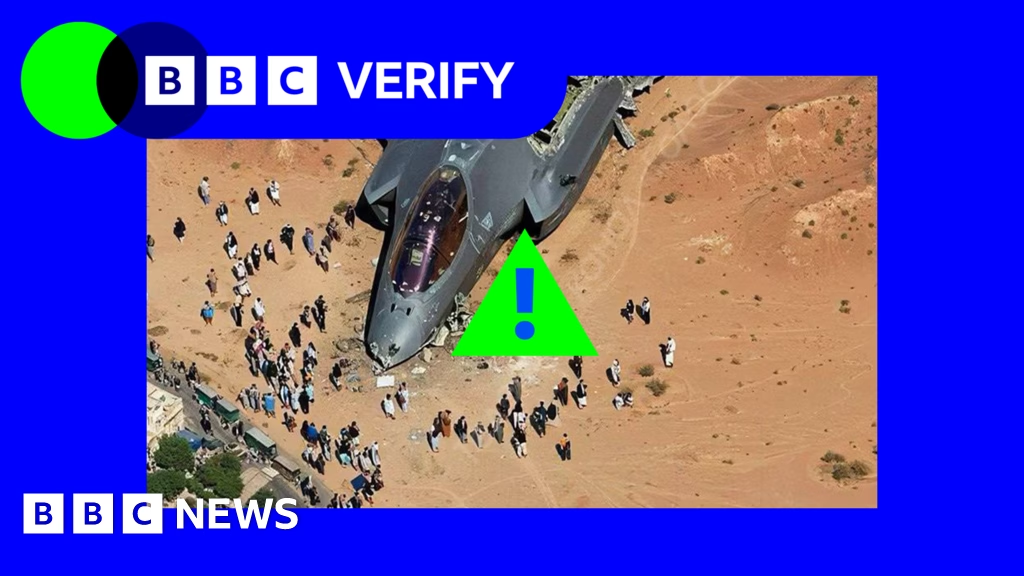The original content provided is a structured article about disinformation on social media channels related to the conflict between Israel and Iran. The article highlights the spread and impact of fake videos, images, and claims created using artificial intelligence, which has driven significant engagement and misinformation. The piece includes statements from analysts, describes the methods and motivations behind the disinformation campaigns, and touches on the role of social media platforms in the spread of such content. Below is a rewritten version of the article that maintains the core information and structure while ensuring clarity and flow:
A wave of disinformation has swept across social media since Israel began strikes on Iran, according to an analysis by BBC Verify. Videos created using artificial intelligence (AI) have boasted of Iran’s military strength, while fake images and videos have shown the aftermath of strikes on Israeli targets. The most viewed fake videos identified by BBC Verify have accrued over 100 million views across multiple platforms.
Pro-Israeli accounts have also actively spread disinformation by sharing old clips of protests and gatherings in Iran, falsely claiming they depict growing dissent against the government and support for Israel’s military actions. Israel launched strikes in Iran on 13 June, sparking several rounds of missile and drone attacks from Iran.
One disinformation analysis organization described the amount of fake content online as “astonishing” and accused certain “engagement farmers” of profiting from the conflict with misleading content designed to attract attention. Many accounts have become “super-spreaders,” quickly growing their follower counts by sharing disinformation. For example, a pro-Iranian account, Daily Iran Military, saw its followers on X increase by 85% in less than a week.
AI-generated content has been particularly notable and marks “the first time we’ve seen generative AI be used at scale during a conflict,” according to Emmanuelle Saliba, Chief Investigative Officer with the analyst group Get Real. BBC Verify has frequently found AI-generated images and videos that appear to exaggerate Iran’s response to Israel’s strikes. One image showing dozens of missiles falling on Tel Aviv has 27 million views, while another video falsely depicted a missile strike on an Israeli building late at night.
AI fakes have also focused on claims of the destruction of Israeli F-35 fighter jets, a state-of-the-art U.S.-made aircraft. If the barrage of clips were real, Iran would have destroyed 15% of Israel’s fleet, according to Lisa Kaplan, CEO of the Alethea analyst group. However, no authenticated footage of F-35s being shot down exists.
One widely shared post showed a jet damaged after being shot down in the Iranian desert, but signs of AI manipulation were evident with the size of civilians matching nearby vehicles and no impact seen on the sand.
Disinformation is also being spread by well-known accounts that may be attempting to monetize the conflict, with some platforms offering pay-outs for accounts achieving large view numbers. On the other hand, pro-Israeli posts have mainly suggested that the Iranian government faces mounting dissent as the strikes continue.
Industry experts note that certain accounts and platforms are proving more effective at spreading disinformation, leaving users to frequently turn to AI tools on these platforms to establish the veracity of posts. However, these tools have sometimes incorrectly identified AI videos as real. Many videos have also surfaced on TikTok and Instagram, with these platforms stating they actively enforce their community guidelines against misleading content.
The rise of disinformation online, especially during conflicts, points to broader social and psychological issues, including people’s inclination to share content that aligns with their political identities or is sensational and emotive, according to Matthew Facciani, a researcher at the University of Notre Dame.
The rewritten content simplifies some of the structure while maintaining the crucial information and insights regarding the spread and implications of disinformation during the Israel-Ireland conflict.
Source: https://www.bbc.com/news/articles/c0k78715enxo








